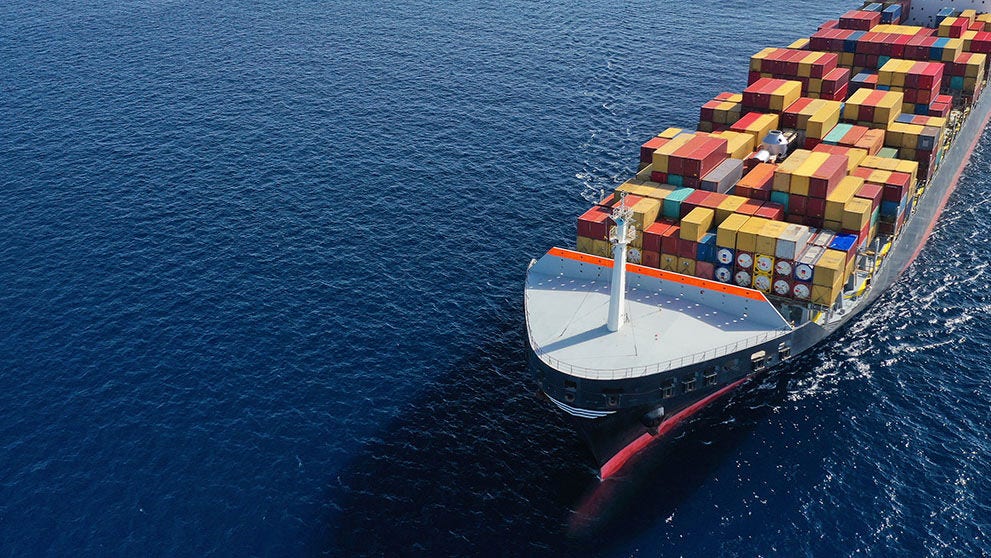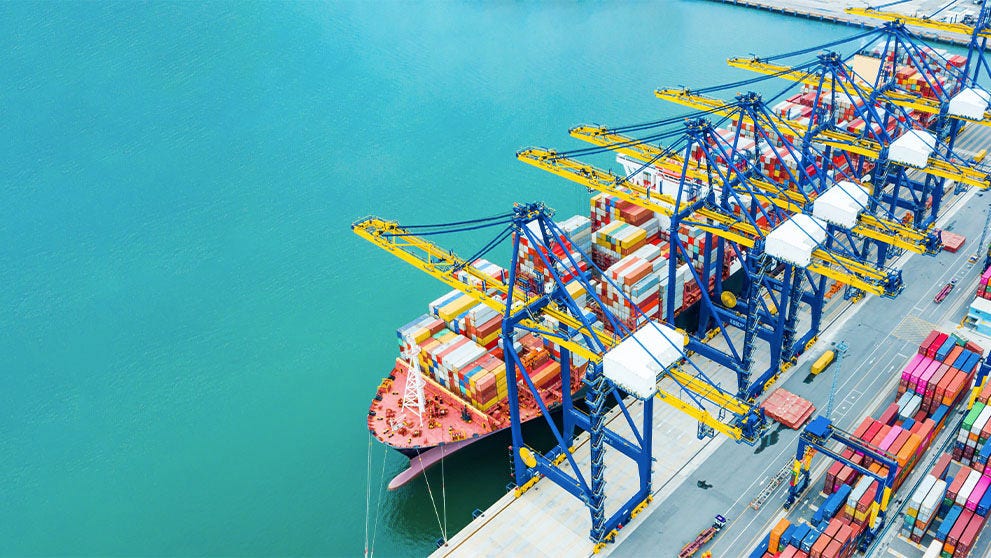
Future-proofing EU exports: Why ICS2 readiness matters for Bangladeshi businesses
Your shipment lands in Frankfurt, but before it even clears the tarmac, it's held up. The cause? An entry summary declaration flagged for an ambiguous item description—“textile accessories.”
What follows is a domino effect: delayed clearance, unexpected storage costs, mounting buyer frustration, and a potentially missed delivery deadline. For exporters, moments like this are not just costly but also risk damaging client trust, slowing down operations, and jeopardizing long-standing trade relationships.
Businesses in Bangladesh, particularly in the apparel and ready-made garment (RMG) sectors, cannot afford such disruptions. After all, the EU has long been a vital trading partner, with Bangladesh leveraging preferential trade terms under the Generalized System of Preferences (GSP) and the Everything But Arms (EBA) scheme.
According to Friedrich-Ebert-Stiftung, exports to the EU even grew from under US$2 billion in FY01 to US$25.2 billion in FY23—over 92% of which came from RMG. This growth, however, now faces a new compliance hurdle: the European Union’s Import Control System 2 (ICS2).
ICS2 is Europe’s enhanced customs risk management system designed to collect and assess safety and security data for all goods entering or transiting the EU. As Release 3 goes live throughout 2025, exporters in Bangladesh, especially those moving goods by air, road, rail, or inland waterways, will face stricter data submission requirements and earlier declaration deadlines. That includes express and postal consignments moving through not only the EU but also Northern Ireland, Norway, and Switzerland.
Under the new requirements, all economic operators must file detailed Entry Summary Declarations (ENS) at house level. This means responsibility for data accuracy doesn’t just sit with the freight forwarder—it begins with the exporter.
Incomplete or unclear data may also trigger customs queries, delay risk assessments, or lead to declaration rejections. Worse, non-compliance could result in administrative penalties or supply chain bottlenecks at the border.
So, how do you navigate these changes and what steps should you take to avoid avoidable errors, shipment delays, or reputational damage in a highly competitive EU trade environment?
Why ICS2 matters for Bangladesh–EU trade
For exporters in Bangladesh, the European Union represents a cornerstone of trade. In 2024, the EU was Bangladesh’s largest trading partner, with total bilateral trade reaching €22.2 billion, underscoring the country’s reliance on fast, compliant, and uninterrupted access to EU markets.
But this access now comes with new obligations under the ICS2.
ICS2 is the EU’s centralized pre-arrival risk assessment system, designed to enhance safety and security across all transport modes. As a result of this, all goods entering or transiting the EU, via air, sea, rail, road, inland waterways, express, or postal channels, must be declared through an ENS before arrival. Customs authorities will leverage this data to identify potential risks and decide whether to allow loading, request additional documentation, or take further action.
What makes ICS2 particularly important for businesses in Bangladesh is its expansion to cover all modes of transport. This includes air freight, which plays an increasingly important role in Bangladesh’s garment trade.
Between January 2024 and March 2025 alone, over 34,900 tonnes of apparel valued at US$462 million were exported via Indian airports to 36 countries, according to the Bangladesh Garment Manufacturers and Exporters Association. Road and rail shipments also fell under mandatory ICS2 compliance as of September 2025.
Failure to comply could result in delays, denied loading permissions, additional inspections, or even penalties. These aren’t minor inconveniences as they can disrupt delivery schedules, inflate logistics costs, and harm long-standing trade relationships.
What is new in ICS2 Release 3
ICS2 Release 3 marks the final and most extensive phase of the EU’s shift toward pre-arrival customs data enforcement. With tighter requirements and broader scope, it places new responsibilities on exporters across all transport modes.
What is Release 3?
ICS2 Release 3 is the third and final rollout of the EU’s enhanced pre-arrival customs risk assessment system. Its core goal is to ensure that authorities have complete safety and security information before goods arrive across all modes of transport.
Effective from April 1, 2025, all goods transported via maritime channels to or through the EU and associated countries will require pre-loading and pre-arrival customs clearance. From September 1, 2025, the same will apply to road and rail shipments. This phase places particular focus on house-level ENS—detailed filings that require granular product information, including precise goods descriptions and HS codes at the line-item level.
What sets Release 3 apart is its shift in responsibility: data submission is no longer the sole duty of carriers or freight forwarders. Shippers themselves, including exporters from Bangladesh, must now take an active role in ensuring that their shipments meet ICS2 requirements before departure. This change allows EU customs to perform risk assessments earlier in the supply chain, helping compliant shipments move faster while flagging high-risk consignments for additional checks.
For businesses not yet familiar with ENS protocols or HS code mapping, this release is a wake-up call. Trade into or through the EU will now depend on how well your shipment data is prepared—and how early it is submitted.
What data is required?
Each ENS must include complete, item-level data for all goods entering or transiting through the EU, Switzerland, Norway, or Northern Ireland.
Each item must be declared using a six-digit Harmonized System (HS) code, accompanied by an accurate commercial description. Product descriptions must also be clear and specific to each item in the shipment.
The ENS must also include:
- The EORI numbers (Economic Operator Registration and Identification) of both the consignee and consignor;
- Detailed declarant information;
- And full consignment-level documentation, such as the names and addresses of the buyer, seller, and any party listed on the lowest-level bill of lading or air waybill.
Risks of non-compliance
Failing to meet ICS2 requirements doesn’t just cause delays—it can halt your shipment entirely. This is because EU customs authorities are enforcing these new rules and standards strictly, and incomplete or incorrect filings will trigger immediate intervention.
Here’s what non-compliance can lead to:
- Shipment delays at origin: If security filings are incomplete or submitted late, goods may not be loaded at the departure point.
- Blocked clearance at EU borders: Goods arriving without valid ICS2 data may be held by customs. In some cases, shipments will not be cleared until updated declarations are provided.
- Customs intervention and rejections: Inadequate filings may trigger referrals for additional data or inspections, or lead to outright rejection by the EU Member State authority.
- Operational and financial impact: Delays may result in storage or demurrage fees, missed delivery timelines, and reputational damage with buyers.
- Missed delivery windows and lost revenue: For time-sensitive shipments, such as fast fashion or seasonal items, even a short delay can result in missed retail handovers and lost sales opportunities.
How exporters in Bangladesh can prepare for ICS2

With ICS2 shifting compliance responsibilities upstream, exporters must take a more active role in preparing their teams, systems, and processes to ensure shipments move smoothly through EU borders.
1. Train your internal teams
Getting ahead of ICS2 starts with internal readiness. Your logistics, export operations, and sales teams must understand what the regulation demands and how it affects their daily workflows. Educate relevant departments on the ENS process, and clarify who is responsible for submitting data, verifying accuracy, and responding to customs queries.
It’s also critical to provide tools and training to support this shift. Equip staff with HS code lookup resources, practical guides, and classification support to reduce the risk of errors.
2. Improve your product data
Accurate product information is essential under ICS2. Maintain a centralized, up-to-date database with validated HS codes and detailed item descriptions. Include clear details on material composition, intended use, and product function—this level of precision is necessary for customs risk assessments.
For businesses with large product ranges or frequent SKU updates, regular audits of classification data are recommended. Building quality data upstream will reduce the need for last-minute corrections and help keep your shipments on schedule.
3. Audit your shipping workflows
ICS2 doesn’t just affect what you submit—it impacts how your systems generate and share information. As such, start by mapping the flow of customs-relevant data across your operations, including ERP platforms, invoices, commercial documents, and sales tools. Look for inconsistencies or gaps between what’s sold, what’s packed, and what’s declared.
Where possible, introduce validation tools or automation to flag missing or invalid fields before filing. Also ensure your processes are equipped to handle customs notifications, potential system disruptions, and re-filings where needed. Exporters will also need an EORI number issued by an EU Member State, and either integrate directly with ICS2 or engage a service provider to support ENS filings.
Stay compliant with ICS2 — and stay competitive in the EU
ICS2 marks a significant change in how shipments are cleared into the European Union. With earlier data submission deadlines and stricter entry requirements, exporters in Bangladesh must be proactive in how they manage shipment information. Whether you're moving garments, pharmaceuticals, or any other high-volume goods, being unprepared can result in delays, penalties, or lost business.
That’s why working with a global shipping and logistics partner like DHL Express Bangladesh can be a strategic advantage.
Our systems are already aligned with ICS2 and equipped to support ENS 2.0 requirements. When you ship with DHL Express, many of the complex technical tasks, including data submission to ICS2, are handled on your behalf.
However, your role remains critical.
You are responsible for ensuring that the data you provide at the time of booking, such as product descriptions, HS codes, and consignee details, is complete, specific, and accurate. We are not permitted to edit vague product descriptions or correct missing fields, and shipments with stop words or incomplete data may be delayed by EU customs.
To keep your shipments moving, be sure to:
- Describe goods clearly and precisely
- Avoid stop words or generic labels
- Provide complete names and addresses for shipper and recipient
- Match the commercial invoice to the declaration
Once the correct details are submitted, we’ll take care of the rest, from customs clearance to real-time tracking, so you can focus on growing your business in Europe with confidence.
Open a DHL Express business account today and stay ready for what’s next in international shipping.








